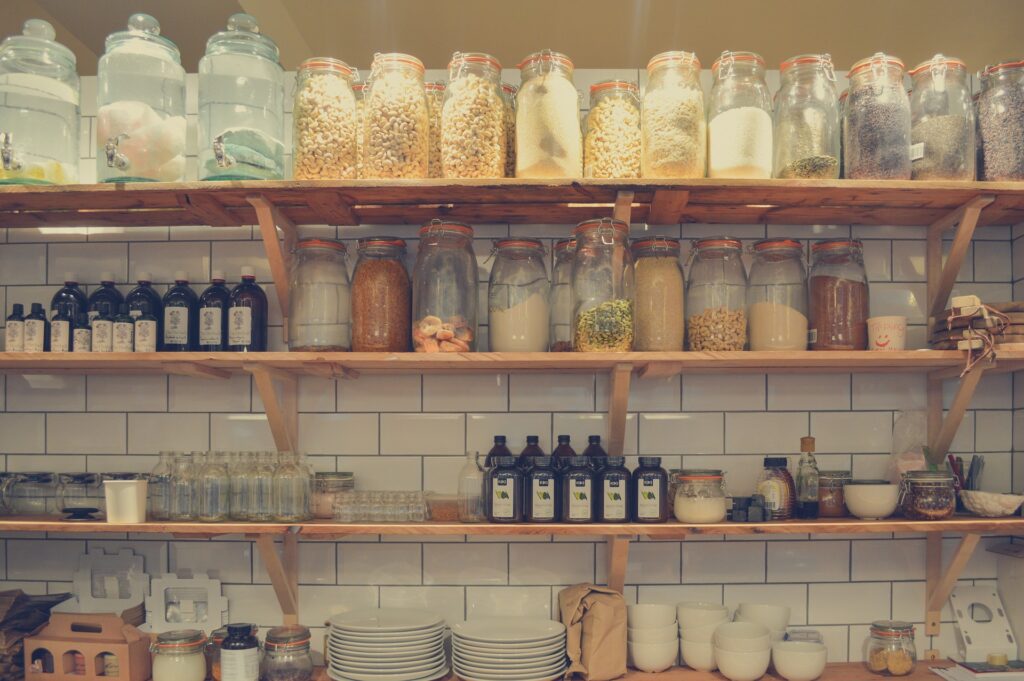
As a prepper looking to ensure your survival in the face of disaster or emergencies, it’s important to understand that one of the most crucial aspects of prepping is not just stocking up on food, but rather the proper way to store your emergency and long-term food storage.
If you want to be self-sufficient, it’s important to have a long-term food supply. However, not all foods can last for years unless they are stored correctly.
To ensure that your prepper food storage is effective, it’s important to consider a few key factors. First and foremost, you’ll want to choose foods that have a long shelf life and are non-perishable. This includes items like canned goods, dried fruits and vegetables, and freeze-dried meals.
When storing your food, it’s important to keep it in a cool, dry place that is free from moisture and pests. Consider investing in high-quality storage containers or Mylar bags with oxygen absorbers to help extend the shelf life of your food even further.
Make sure you date the containers with the month and the year. Rotate your food supply regularly to ensure that nothing goes bad or expires before you have a chance to use it.
Buy in bulk quantity. Start with a lot of beans, the number one choice in emergency long-term food storage because these will give you a supply of protein. Buy grains such as wheat, oats, rye, cornmeal, rice, flour, and barley.
Powdered milk will last for many years. Nuts, dried fruit, canned meats, etc… all of these are great for long-term food storage. Pack everything well, then pack into the Mylar bags, and place them off the floor, in a cool room.
Another important factor to consider when prepping your food storage is to have a variety of foods. This will help prevent food fatigue and provide you with the necessary nutrients for survival. Consider adding spices, condiments, and flavorings to your storage to make meals more enjoyable.
It’s also important to have a plan for cooking and preparing your food in case of an emergency. Make sure you have a reliable source of heat and cooking equipment that can be used without electricity or gas.
Don’t forget to include water in your prepper food storage plan. Water is essential for survival, and it’s recommended to store at least one gallon per person per day. Consider investing in a water filtration system or water purification tablets as well.
Another important factor to consider when storing prepper food is the nutritional value of the items you choose. While it’s tempting to stock up on junk food and sugary snacks, these items won’t provide the sustenance your body needs in a survival situation. Instead, focus on nutrient-dense foods like whole grains, beans, and nuts. These items will provide you with the energy and nutrients you need to stay healthy and strong during a crisis.
Don’t forget to factor in any dietary restrictions or allergies when choosing your prepper food storage items. It’s important to have a variety of options that meet everyone’s needs in case of an emergency. With these tips in mind, you can create a well-rounded and effective prepper food storage plan that will help ensure your survival in any situation.
It cannot be stressed enough that if you don’t store your food properly, it will go bad and will not last.
1. Store food in airtight containers, preferably food-grade containers that are airtight, such as buckets or storage crates.
2. Keep food in a cool, dry place and out of heat and moisture.
3. Avoid storing food in direct sunlight.
4. Use Mylar bags and oxygen absorbers.
In addition to the aforementioned tips, it’s important to consider the potential risks and challenges that may arise during a survival situation. For example, if you live in an area prone to natural disasters like hurricanes or earthquakes, you’ll want to make sure your food storage is secure and won’t be damaged or destroyed in the event of a disaster.
Furthermore, it’s important to have a plan for restocking your food supply in case of an extended emergency. Consider growing your own fruits and vegetables, raising livestock, or bartering with other preppers for necessary supplies.
By taking these factors into account and following the tips outlined above, you can create a comprehensive prepper food storage plan that will help ensure your survival in even the most challenging circumstances and you’ll be well-prepared.

